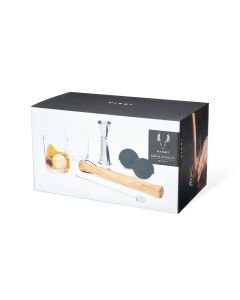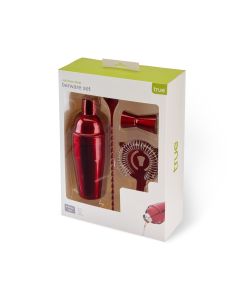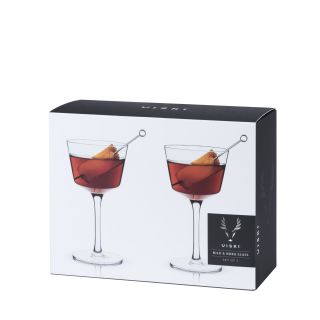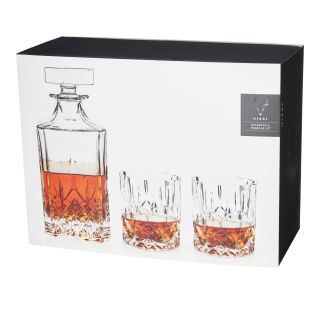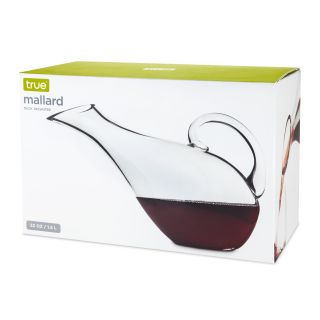Barware is not only functional but also an essential part of the home bar experience. Whether it’s a classic wine glass, a sturdy whiskey tumbler, or an elegant cocktail coupe, these glasses serve as both vessels for your favorite drinks and symbols of hospitality. But what happens when they break? Whether due to clumsy handling, accidental bumps, or improper storage, bar drinkware can be fragile and costly to replace.
Fortunately, there are several practical ways to protect your glasses from damage. In this guide, we’ll explore glass-saving hacks that will keep your barware intact for years to come. From proper storage techniques to careful handling tips, these strategies will help you safeguard your collection and maintain your investment.
Choose the Right Barware: The Foundation of Durability
Before diving into specific hacks, it’s important to start with the right foundation. Not all barware is created equal. While all glasses have their own charm, some are built with sturdier materials than others.
Opt for Reinforced Glassware
Reinforced glassware, often made of borosilicate or tempered glass, is more resistant to breakage than traditional glass. Borosilicate, commonly used for laboratory equipment, can withstand higher temperatures and physical impact, making it an ideal choice for those who frequently entertain or use their glasses in busy environments.
Tempered glass, on the other hand, is heat-treated to increase strength. It’s often used for everyday glassware, as it’s less prone to shattering compared to regular glass.
Consider Acrylic or Polycarbonate Glasses
If you're worried about fragile glassware entirely, consider investing in high-quality acrylic or polycarbonate alternatives. These materials are virtually indestructible and can mimic the look and feel of real glass without the risk of breakage. While these may not offer the same elegance as fine crystal, they can still be perfect for poolside gatherings or casual get-togethers.
Handle with Care: The Secret to Minimizing Breakage
One of the most common causes of glassware breakage is mishandling. Whether you’re pouring a drink, placing a glass on a counter, or stacking them for storage, how you handle your glasses matters.
Hold Glassware by the Stem or Base
When handling delicate glasses like wine glasses or martini glasses, always hold them by the stem or base rather than the bowl. Gripping the bowl can put pressure on the most fragile part of the glass, increasing the risk of cracks or breakage. For highball or lowball glasses, always lift them by the base to avoid any stress on the sides.
Never Stack Glasses Without Caution
It might be tempting to stack glasses to save space, especially in a crowded cabinet. However, this practice can lead to cracks, chips, or accidental shattering. If you must stack glasses, be sure to place a soft cloth or paper towel between each glass. This creates a cushion that reduces the chance of glass-on-glass friction, which can weaken the structure of your barware.
Use a Soft Cloth for Cleaning
When washing your glasses, always opt for a soft cloth or microfiber towel to gently wipe away any dirt or smudges. Avoid using abrasive sponges or cloths that could scratch or weaken the glass. A dedicated glass towel can help protect delicate glasses while drying them.
BistroToRestro is your go-to destination for high-quality barware and party essentials at cost-effective pricing. From beer accessories like bottle openers and coolers to wine accessories such as corkscrews and wine stoppers, we have everything you need to elevate your drinking experience. Our collection also includes disposable party supplies, drinkware like glasses and tumblers, liquor accessories like cocktail shakers and stirrers, and serveware to make your gatherings complete. With affordable prices and top-notch quality, BistroToRestro ensures your barware and hosting needs are met with style and practicality.
Proper Storage: Keeping Your Glasses Safe
Proper storage is crucial when it comes to preventing your glasses from breaking. The way you store your barware can make all the difference in its longevity.
Invest in a Glass Rack or Dedicated Shelf
One of the best ways to prevent accidental breakage is to store your glasses on a dedicated glass rack or in a secure, designated shelf. A glass rack that suspends glasses by their stems ensures that they are kept safely out of the way, reducing the chance of them getting knocked over. For stemless glassware, a dedicated shelf with sufficient space between glasses will reduce the chances of them clinking together.
Store Glasses Upright and with Space Between Them
If you don’t have a glass rack, store your glasses upright with enough space between them to prevent clinking. For more fragile glasses like champagne flutes, make sure to store them with enough room so that they don’t come into contact with each other. Storing glasses too closely can result in chips or cracks, especially when they are jostled.
Use Non-Slip Mats or Trays
To prevent glasses from shifting around in cabinets or during transport, line your shelves with non-slip mats or trays. These mats provide an additional layer of security, ensuring that your glasses stay in place even during everyday activity. For extra protection, you can place dividers or felt pads between each glass to prevent accidental collisions.
Also Read on: Serveware Sets: From Serving Trays to Cheese Board Sets
Safeguard Against Temperature Shocks
Temperature fluctuations are another leading cause of glass breakage. Barware can be particularly vulnerable when exposed to sudden temperature changes, such as transferring a glass from a hot surface to a cold one.
Avoid Extreme Temperature Shifts
To avoid breaking your glassware, avoid transferring your glasses directly from hot to cold environments (or vice versa). For example, never pour a hot liquid into a cold glass or place a warm glass in a cold environment. This rapid shift in temperature can cause the glass to expand or contract, leading to cracks or complete breakage. Similarly, avoid leaving your glassware in direct sunlight, as prolonged exposure to heat can weaken the glass over time.
Pre-Chill or Pre-Warm Glasses
For certain drinks, pre-chilling or pre-warming your glasses can actually improve the drinking experience. For example, whiskey glasses are often pre-warmed to enhance the aromas of the spirit. Similarly, cocktail glasses can be chilled before use to maintain the temperature of the drink. Just be sure to avoid extreme temperature differences by gradually warming or chilling glasses.
Protect Your Glassware from Bumps and Scrapes
Whether you're moving glasses around or entertaining guests, bumps and scrapes are inevitable. Here are a few tips to ensure that your glasses stay safe:
Use Protective Covers When Transporting Glasses
When transporting glassware, whether it's from the kitchen to the living room or from the bar to the table, consider using protective covers. A soft cloth or padded carry case can cushion the glasses from bumps and provide extra security during movement.
Store Glassware in a Drawer for Extra Protection
For glasses that are particularly fragile, storing them in a drawer can offer more protection than an open shelf. Drawer inserts can help keep your glasses separated and cushioned, reducing the chance of accidental knocks or falls. Just make sure the drawer is lined with soft material to provide additional cushioning.
Regular Inspections: Catching Problems Early
The best way to prevent serious breakage is to regularly inspect your barware for signs of damage. Small cracks or chips can be the precursor to larger breakages, so addressing these issues early can help preserve the life of your glasses.
Look for Hairline Cracks
Even if your glassware looks perfectly fine, be sure to inspect each piece for tiny hairline cracks, especially around the rim or base. These cracks might not be immediately visible, but they can become worse over time, leading to a complete breakage.
Keep an Eye on the Rim and Base
The rim and base of a glass are particularly vulnerable to chips. Regularly check these areas for any signs of wear and tear. If you notice a chip in the rim, it's best to retire the glass from regular use to prevent it from worsening.
Repairing and Upcycling Damaged Barware
While preventing breakage is always the goal, sometimes accidents happen. If your glassware does break, don’t throw it out just yet.
Repair with a Glass Adhesive
If your glass has a small crack or chip, some specialty glass adhesives can help repair it. Be cautious, though, as repairing a glass that will still be in contact with liquid or heat might not be ideal. For decorative pieces or glasses that don’t handle extreme conditions, adhesive can provide a temporary fix.
Upcycle Broken Glasses
For those who enjoy crafting, broken glassware can be turned into beautiful, unique art pieces. Broken wine glasses can be transformed into candle holders, vases, or even decorative mosaics. While this won’t save your barware for regular use, it does offer a creative way to breathe new life into damaged pieces.
Conclusion: Keep Your Barware in Pristine Condition
Investing in high-quality barware is just the beginning—how you handle, store, and care for your glasses plays a vital role in their longevity. By following these glass-saving hacks, you can ensure that your barware stays intact and ready for use for many years to come. Whether you opt for reinforced glass, store your glasses with care, or protect them from temperature shocks, these simple tips will help you avoid the frustration and expense of broken glassware.
FAQs
How to prevent glassware from breaking?
To prevent glassware from breaking, handle it with care by holding it by the stem or base, store it upright with enough space between glasses, and avoid sudden temperature changes.
What can you put on glass to keep it from breaking?
To protect glassware, you can use padded inserts, non-slip mats, or soft cloths between glasses to reduce impact and prevent damage. Also, consider using protective covers when transporting.


